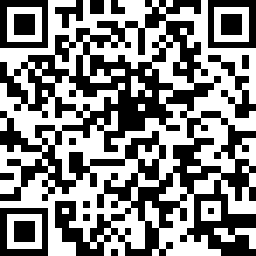Why use CJKV Dict?
If you are learning Chinese, Japanese, Korean and/or Vietnamese (the so-called CJKV languages), you have probably noticed that a large number of words are shared among these languages. In fact, about 60% of the vocabulary of Japanese, two thirds of the vocabulary of Korean, and one third of the vocabulary of Vietnamese is of Chinese origin, and can hence be written in Chinese characters. Therefore, to learn these four languages more efficiently, it is sometimes helpful to know whether or not the same Chinese characters are used in all four languages to express the same word.
Sadly, using standard bilingual dictionaries (e.g. Chinese-English, Japanese-English, Korean-English or Vietnamese-English dictionaries) makes it difficult to do this because Chinese, Japanese, Korean and Vietnamese were each subjected to script reforms during the 20th century, which significantly impacted the way these four languages are written. Because of these reforms, Chinese characters were simplified in Chinese and Japanese, and completely removed from the writing system of Korean and Vietnamese.
Before these reforms, Chinese, Japanese, Korean and Vietnamese were all written using an unsimplified form of Chinese characters as part of their writing systems, now known as traditional Chinese characters. However, this is no longer the case:
- The Chinese characters used in Chinese were simplified by the government of the People's Republic of China (PRC), which resulted in a set of Chinese characters called simplified Chinese characters. These simplified Chinese characters were adopted by Mainland China and Singapore as the official character set, while other Chinese-speaking territories (Taiwan, Hong Kong and Macau) kept traditional Chinese characters official.
- The Chinese characters used in Japanese (Kanji) were also simplified by the Japanese government. These simplified characters are called Shinjitai (新字体), while their traditional counterparts are known as Kyūjitai (舊字體) in Japan. Because the Japanese government carried out these simplifications independently from the PRC's government, the forms of Shinjitai characters vary significantly from the forms of simplified characters used in Chinese. Besides, since the Kyūjitai characters are no longer used to write Japanese, they are generally not present in bilingual Japanese-English dictionaries.
- The Chinese characters used in Korean (Hanja) were removed from the writing system of that language because of Hangul exclusivity policies carried out by the governments of both North and South Korea. For this reason, many bilingual Korean-English dictionaries do not even include Hanja.
- Vietnamese used to be written with a writing system known as Chữ Nôm, which combined classical Chinese characters with a large number of new characters created by Vietnamese people to represent native Vietnamese words. However, this writing system is no longer in use because of drastic reforms carried out by the French colonial administration of Vietnam, replacing it with the Vietnamese alphabet, a phonetic alphabet based on the Latin script.
As a result of these reforms, if one were to enter a Japanese word written in Kanji into, say, a Chinese dictionary, the Chinese dictionary may not return any result even though the same word exists in Chinese because the Japanese word is written using simplified characters which are not used in Chinese. An example is the Japanese word 経済 ("keizai", meaning "economy"), which is written 经济 (in simplified Chinese characters) or 經濟 (in traditional Chinese characters) in Chinese (pronounced "jīngjì" in Mandarin).
Similarly, entering a Chinese or Japanese word into, say, a Korean dictionary might not yield any result. This can either happen because the Korean dictionary does not include Hanja, or, even if that Korean dictionary supports Hanja, because the Chinese word is written in simplified Chinese characters, or because the Japanese word is written in Shinjitai.
This is where CJKV Dict comes in handy. Besides the ability to return search results for a specific word written in Chinese characters in all four CJKV languages, CJKV Dict automatically converts simplified Chinese characters and Japanese Shinjitai to traditional Chinese characters. This makes it possible to check whether or not the same Chinese characters are used in Chinese, Japanese, Korean and/or Vietnamese to write the same word.
To see how this works, do not hesitate to check out our howto page.

